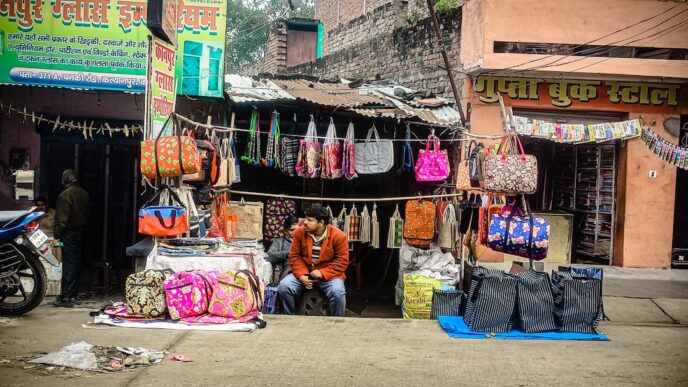Economic inequality is a persistent issue that affects societies worldwide, creating a divide between the rich and the poor. This disparity in wealth, income, and access to opportunities can lead to serious social and economic problems. In this blog post, we’ll explore the causes of economic inequality, its impacts, and the potential solutions to bridge the gap.
Understanding Economic Inequality
Economic inequality refers to the unequal distribution of wealth and income among individuals or groups in society. It manifests in several ways, including disparities in wages, wealth accumulation, education, and healthcare access.
For example, in countries with high economic inequality, the richest 10% may hold the majority of the country’s wealth, while the poorest struggle to meet basic needs. This gap can lead to lower social mobility, making it harder for people born into poverty to improve their economic situation.
Causes of Economic Inequality
Several factors contribute to economic inequality, and understanding them is crucial to addressing the issue. Here are some of the primary causes:
1. Globalization and Technological Change
Globalization and advancements in technology have transformed economies. While they have created new opportunities, they have also contributed to inequality by disproportionately benefiting those with higher skills and education. Workers in lower-skill jobs may see their wages stagnate or even decline as automation and offshoring reduce demand for their labor.
2. Education and Skill Gaps
A lack of access to quality education exacerbates economic inequality. Individuals with higher education levels generally have better job prospects and earn higher wages, while those without access to education struggle to find well-paying jobs. The skill gap between workers also plays a significant role, as economies increasingly reward high-skilled labor.
3. Wage Disparities
Wage disparities between different industries and occupations are another key driver of economic inequality. In many countries, the wages of top executives and professionals have grown rapidly, while wages for low- and middle-income workers have stagnated. This is particularly pronounced in sectors such as finance and technology, where high salaries and bonuses are common.
4. Tax Policies
Tax policies can either exacerbate or mitigate economic inequality. Regressive tax systems, where low-income individuals pay a higher percentage of their income in taxes than the wealthy, can widen the income gap. On the other hand, progressive tax systems, which tax higher earners at higher rates, can help reduce inequality.
5. Inheritance and Wealth Concentration
Wealth inequality is often passed down from one generation to the next. Those born into wealthy families have access to better education, healthcare, and social networks, giving them a head start in life. Meanwhile, individuals from low-income backgrounds may struggle to accumulate wealth, further entrenching inequality.
Impacts of Economic Inequality
The effects of economic inequality go beyond individual financial struggles; they impact societies at large:
1. Social Unrest and Political Instability
High levels of economic inequality can lead to social unrest as people feel disenfranchised and marginalized. This can create political instability, as those affected by inequality demand changes in government policies or challenge existing power structures.
2. Slower Economic Growth
Economies with high inequality tend to grow more slowly. This is because when wealth is concentrated in the hands of a few, there is less overall consumer spending, which drives economic growth. Additionally, inequality reduces access to education and opportunities, limiting the potential for innovation and productivity gains.
3. Poor Health and Education Outcomes
Economic inequality often leads to worse health and education outcomes for the lower-income population. Limited access to healthcare and nutritious food can result in higher rates of illness and lower life expectancy. Similarly, children from low-income families may have fewer educational resources, limiting their future earning potential.
4. Reduced Social Mobility
In highly unequal societies, it is much harder for individuals to move up the economic ladder. Lack of access to education, healthcare, and job opportunities can trap people in poverty for generations, creating a cycle of inequality.
Solutions to Economic Inequality
While economic inequality is a complex issue, there are several policy solutions that can help reduce the gap between the rich and the poor:
1. Education Reform
Improving access to quality education is one of the most effective ways to reduce inequality. By providing equal opportunities for all individuals, regardless of their background, governments can help bridge the skill gap and create a more level playing field. Investing in vocational training and lifelong learning programs can also help workers adapt to a changing economy.
2. Progressive Taxation
Implementing progressive tax policies, where higher earners pay a larger percentage of their income in taxes, can help redistribute wealth and reduce income inequality. Additionally, eliminating tax loopholes and ensuring that corporations pay their fair share of taxes can prevent wealth concentration at the top.
3. Raising the Minimum Wage
Increasing the minimum wage can help lift low-income workers out of poverty and reduce wage inequality. By ensuring that workers are paid a living wage, governments can help improve standards of living and reduce the gap between high- and low-income earners.
4. Social Safety Nets
Strengthening social safety nets, such as unemployment benefits, healthcare access, and affordable housing programs, can help mitigate the effects of inequality. By providing support to those who need it most, governments can reduce poverty and create a more equitable society.
5. Wealth Redistribution
Wealth redistribution through policies like inheritance taxes or direct transfers to low-income households can also reduce inequality. By redistributing wealth more fairly across society, governments can help ensure that everyone has the opportunity to succeed.
6. Supporting Small Businesses
Promoting entrepreneurship and supporting small businesses can help create jobs and reduce inequality. Governments can offer tax breaks, grants, and other incentives to encourage the growth of small businesses, particularly in underserved communities.
A Global Challenge
Economic inequality is a global issue that requires cooperation and innovative solutions. While each country faces unique challenges, the root causes of inequality are often similar. Policymakers must work together to address these issues on both a national and international level to create a fairer, more just world.
Economic inequality is one of the most pressing issues of our time. It not only affects individuals but also has wide-ranging implications for society as a whole. Understanding the causes and consequences of inequality is the first step toward finding solutions that promote fairness, social mobility, and economic growth.











